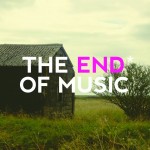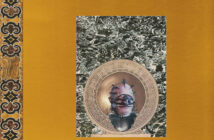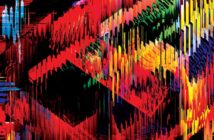I have to admit, I was a bit put off by ‘Golden Bells’, the opening, minute-long, synth intro track to this album, The End Of Music. It sounded a bit pompous and I was half expecting some sort of prog metal abomination to follow. However, I was pleasantly surprised to hear it glide smoothly into the kraut stylings of ‘Ursa Minor’. Its 6 minutes of driving, pastoral bliss is, in fact, rather excellent. And it even resolved back into the same synth as ‘Golden Bells’ started proceeding out with, only this time, with the context firmly embedded in my ears, it made a nice sense.
The Swedish group, built around core duo of Jerker Lund and Dag Rosenqvist, create music that aims for the epic. Across The End Of Music‘s further six tracks (seven if you get the CD, or eight if you include the digital only bonus, ‘Til Gupu’), they never quite motor up to ‘Ursa Minor’s tempo again, but do build droney soundscapes out of organs/synths, piano, acoustic and electric guitars, and slightly less usual instrumentation, such as autoharp on ‘Hidden Mountains’, some gentle drum machine in ‘Erase’, or muted brass in ‘For Family’. Spread over the duration of the album, the lush instrumentation and dozey tempos create a dreamlike quality, across which float the truly lovely sounds of the voices. It’s a sound that requires a particular headspace, though. Outside of ‘Ursa Minor’, nothing is going to grab and demand your attention. You need to surrender to it, or it may float away from you.
The band cites Sigur Ros, Led Zeppelin and My Bloody Valentine as formative influences and, certainly, the sense of grandeur of those artists can be heard in the long-form nature of the tracks and their spacious noodling. However, this music is much more gentle than anything those groups might suggest. I’m actually often reminded of late period Pink Floyd, but without the horrible 80s production. It’s more the hazy, floating nature of the melodies and the acres of reverb which mute psychedelia into a grand form of pastoral. Indeed, as the album progresses, it becomes sleepier and more acoustic in nature, a gradual descent into serene dreams. Which is probably a great way to sum up The End Of Music.
Adrian Elmer




